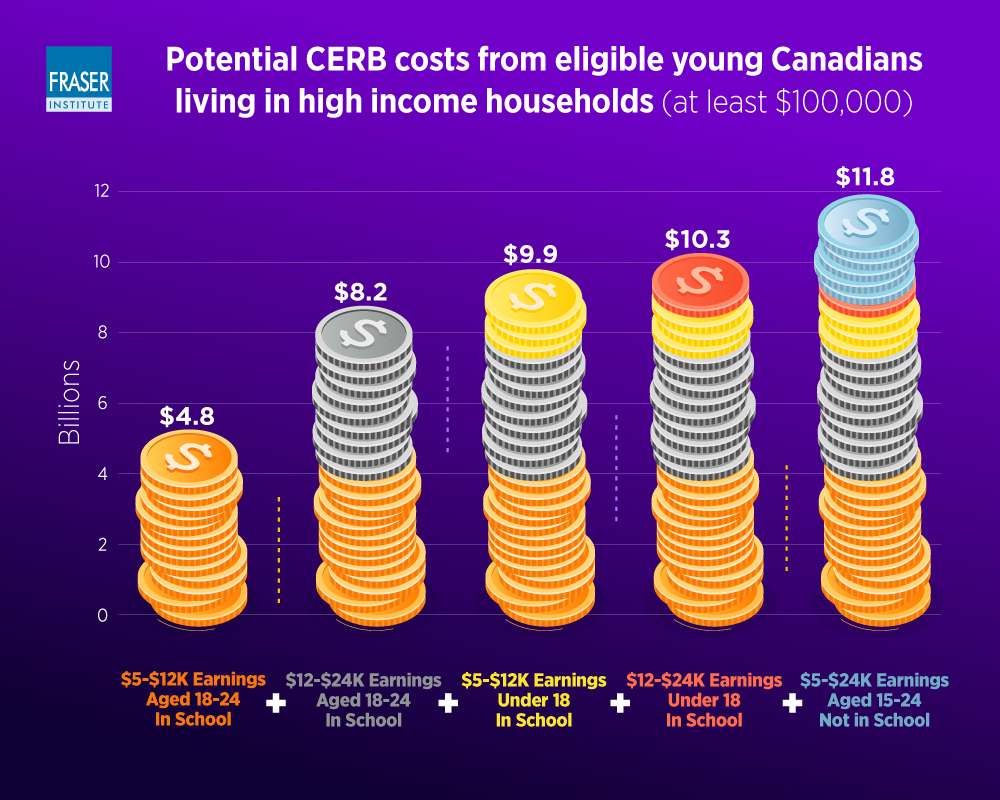Governing Wisely in a Time of Crisis -- or Courting Bought Votes?
 |
"We're now sitting in August. We've had two extensions of CERB [Canada Emergency Response Benefit] with no change in eligibility. So if we're making that argument in April [government claiming its focus in aiding the population was on getting the money out the door as quickly as possible], I think it's a very different dynamic than five months later." "There's a whole lot of people who don't need assistance or whose need is much less, who are not only getting assistance, but they're actually being made better off than they were last year." "We have a world class Department of Finance and I just have to believe that they were raising some concerns about the degree to which the approach we were using on so many of these new programs, was actually going to get money to people who needed it." "I don't know the rationale to send money to seniors who have household income of up to $200,000. We're not getting enough money to that single mom or single dad, who is in extraordinarily difficult circumstances. At the same time, we're giving money to people who again, I just think at best, their need is questionable." Jason Clemens, executive vice-president, Fraser Institute (think tank)
When the Canada Emergency Response Benefit was rolled out it was ostensibly and for all purposes meant to give badly needed financial assistance to the many Canadian workers who lost their employment as a result of the country shuttering schools, businesses and all commercial enterprises with the exception of pharmacies and grocers, as essential industries for obvious reasons. Questions soon began to arise when word got out that there was no caution and no oversight over the applicability of registrants for the CERB. And those administering the program were specifically told not to look too deeply into the applications to find issues of incompatibility with guidelines.
 |
| Infograph, Fraser Institute |
In fact, whenever such applications clearly reflected that the applicant did not fall into the category of entitlement to receive the relief payments, instructions were to approve them regardless. Including thousands of applications that had been flagged as ineligible. In service to the greater issue of providing relief funding to people who needed it. That at some future date an investigation into entitlement under the guidelines would be undertaken, and any who had applied inadvertently or with the intention of defrauding the system, would be held to account, the incorrectly received funding to be returned to government coffers.
The newly released study by the Fraser Institute estimates that up to $22.3 billion may have been disbursed to people who would not have qualified for the CERB; those who had no real need of funding in the presence of the novel coronavirus and its unemployment fallout. CERB was one of several programs that the government had issued as an emergency measure to help Canadians cope with the extraordinary new world they found themselves in; laid off from permanent or part-time or temporary work with bankruptcy staring them in the face.
According to the study, $81.6 billion in COVID recession spending has been remitted to students, parents and seniors, along with people who found themselves peremptorily out of work when stores, restaurants and other small businesses closed as a result of the pandemic. CERB to the rescue. A program that seemed to make sense at its introduction, first launched in April when the country was in its second month of shutdown. Then came two extensions, with no change to the program such as revisiting eligibility rules.
 |
| Photo by Peter J. Thompson/National Post |
Jason Clemens, coauthor of the Fraser Institute report, used Statistics Canada data in his analysis to determine the number of people who were classified either as dependent children or spouses in families with incomes in excess of $100,000. Had any of the people making application to receive CERB earned at least $5,000 in 2019, then lost income as a result of CERB, they would be seen to qualify for CERB. The study estimated a maximum of $11.8 billion may have gone out to young people with part-time jobs, who are dependents in families with household incomes over $100,000 annually.
That is with the assumption a part-time income in 2019 was lost or had hours reduced in 2020 and those people applied for CERB. Another $7 billion could have been sent out to spouses in circumstances quite similar, living in families earning over $100,000 annually. Government could have chosen to make relatively simple, common-sense changes to the application form to disqualify people who were dependents where there was no diminished family income.
The top-up payments for seniors who receive the Old Age Security (OAS) pension and the Guaranteed Income Supplement, also went under the microscope in the study. Government, stated Mr. Clemens should have forwarded that funding to GIS (Guaranteed Income Supplement) recipients only [as without the GIS they fall under the poverty line], since the benefit was meant to specifically aid low-income seniors. The reality being that a senior couple can conceivably have a $260,000 annual income and still qualify for OAS.
 |
| Fraser Institute |
Labels: Canada. Novel Coronavirus Epidemic, Coronavirus, Crisis Managment, Government of Canada, Government of Justin Trudeau
0 Comments:
Post a Comment
<< Home